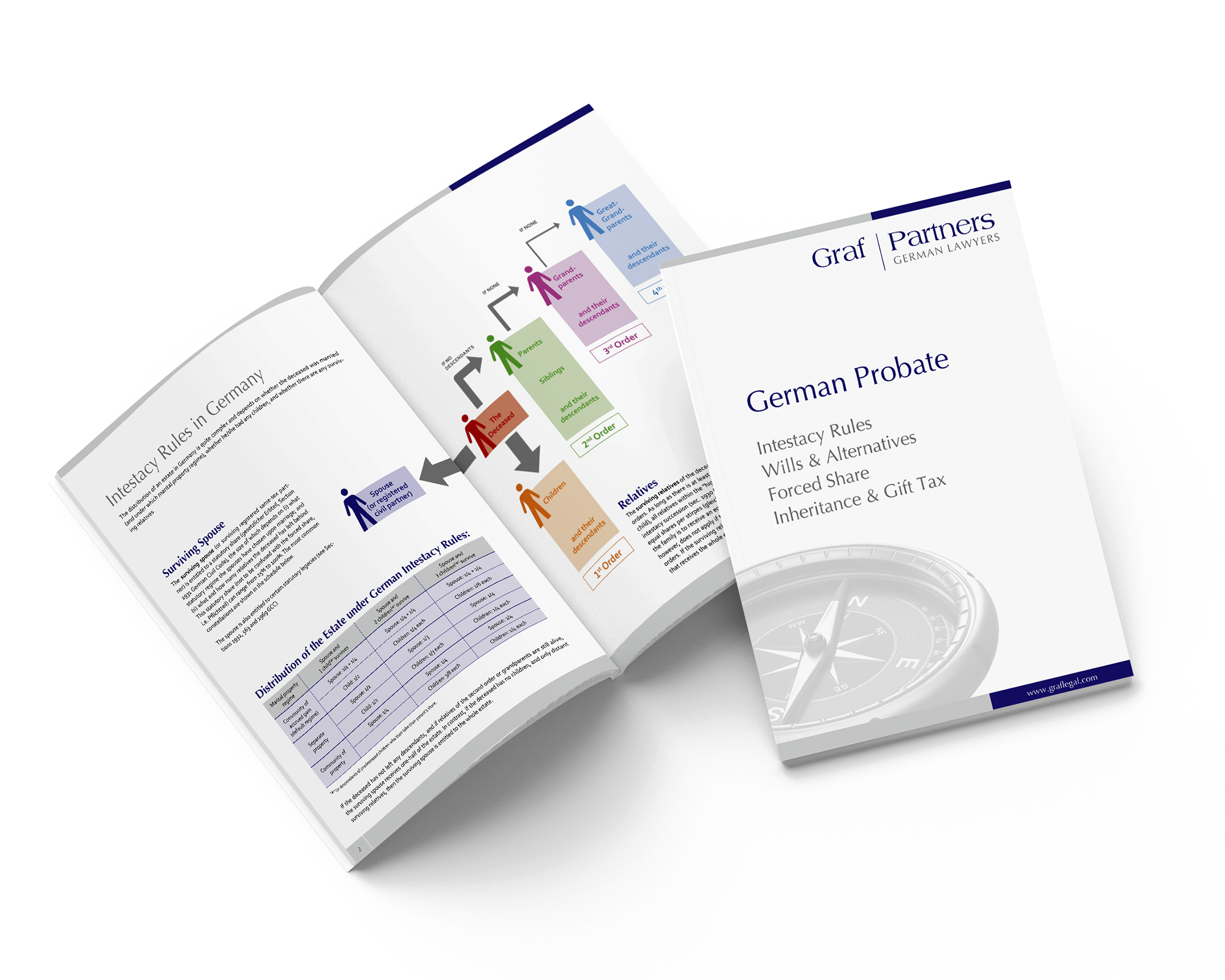
Download your free guide to German probate and estate administration
If an inheritance includes German assets or if the last will names a person resident in Germany, it is important to understand the different requirements and effects of UK and German inheritance law and probate proceedings.
The basics of German succession laws and intestacy rules as well as German inheritance tax are explained in the brochure “German Probate”, which is available for download here.
To avoid typical mistakes in cross-border British-German estate matters, we have published the article “11 Pitfalls of UK-German Estate Planning“, in which we highlight 11 common issues when drafting a will or applying for probate when the estate in question involves both UK and German considerations.
Checklist for the Administration of a German Estate
The law firm Graf & Partners and its German-English litigation department was established in 2003 and has many years of experience with British-German and US-German probate matters, including the representation of clients in contentious probate matters. If you wish us to advise or represent you in a German or cross border inheritance case please contact German solicitor Bernhard Schmeilzl, LL.M. (Leicester) at +49 941 463 7070.


[…] In many cases, the insurer is satisfied with this information. If not, there is no other alternative than to apply for German probate details see here. […]
[…] https://www.crosschannellawyers.co.uk/how-to-get-probate-and-administer-estates-in-germany/ […]
[…] Totenschein. If not, there is no other alternative than to apply for German probate details (see here for more details). The German authorities and the medical practitioners will then disclose the full […]